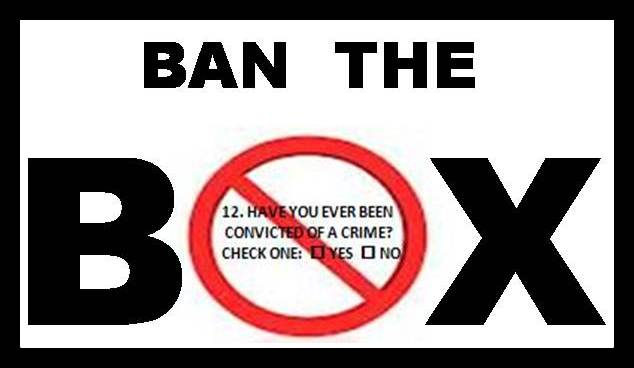by: Brittany Kreibel, Staff Writer
According to a recent National Employment Law Project (NELP) report, one in four adults, nearly 65 million Americans, have a criminal record that could be uncovered with a basic background check. “Ban the Box,” has been a growing trend in recent news as a number of states and localities are adopting some version of this law. Ban the Box basically means that employers will be barred from asking potential employees whether the applicant has ever been arrested, charged, or convicted of any crime prior to a formal job interview. Several states such as California, Colorado, Connecticut, Hawaii, Illinois, Maryland, and New Mexico have adopted statewide ban the box legislation applied to both public and private sector employees. Rhode Island recently adopted this ban, which became effective on January 1, 2014. In addition to statewide bans, some states have both statewide bans and individual locality bans and some just have locality bans. Over 10 states, including Pennsylvania, currently have locality ban the box legislation only.
The Board of Supervisors of San Francisco, California, a city with a high recidivism rate and only statewide ban the box legislation, are in the process of gaining approval of legislation to ban the box. The Board of Supervisors approved an ordinance, which stops employers and housing providers from asking applicants about their criminal history until after they have conducted an interview. This law, proposed in early February 2014, is an extension of existing San Francisco law, which has prohibited public employers from asking about someone’s arrest or conviction record before an interview. The Board of Supervisors of San Francisco will vote on the ordinance one more time before sending it to the mayor for approval. Officials believe that allowing those with a criminal history to gain employment and housing is the key to preventing recidivism. In addition, it will prevent housing providers and employers from developing prejudice before allowing the person a chance to be interviewed. Although, this ordinance is a huge step in allowing those convicted of crimes to lead more promising lives, certain employers such as those in law enforcement and childcare, will still be able to access criminal records before interviewing an applicant.
In Minnesota, James Cannon, now 28 and an advocate of “ban the box,” found himself in a predicament after a night of a few too many drinks. Cannon had just turned in his last college paper and was out celebrating with friends when he ended up in a brawl with another bar patron. Bar customers panicked and someone called the police. When the police arrived, Cannon was holding the other man’s backpack and the police charged him with theft. As a result, Cannon was forced to check the box denoting his criminal history in employment applications. He previously worked in a warehouse with an hourly wage of $8 for the one mistake he made as a college senior. Cannon’s dreams of ban the box came true when legislation was passed in May 2013 banning the box on employment applications. As of January 1, 2014, the Minnesota ban the box policy went into effect making it illegal for employers, excluding those occupations serving children, social workers, private detectives, health care workers, and banks, from asking a job applicant about their criminal history on the job application. Private employers failing to follow this law will be subject to a $500-$2000 fine.
Ban the box is not a new law. It has been around for multiple years but because of the increase in ban the box legislation in 2014, and the fact that Philadelphia has a ban the box policy currently, Pennsylvania will likely follow suit by adopting a statewide policy in the upcoming years.
Check out our coverage of the “Ban the Box” legislation in the most recent print-edition of Juris Magazine HERE!
